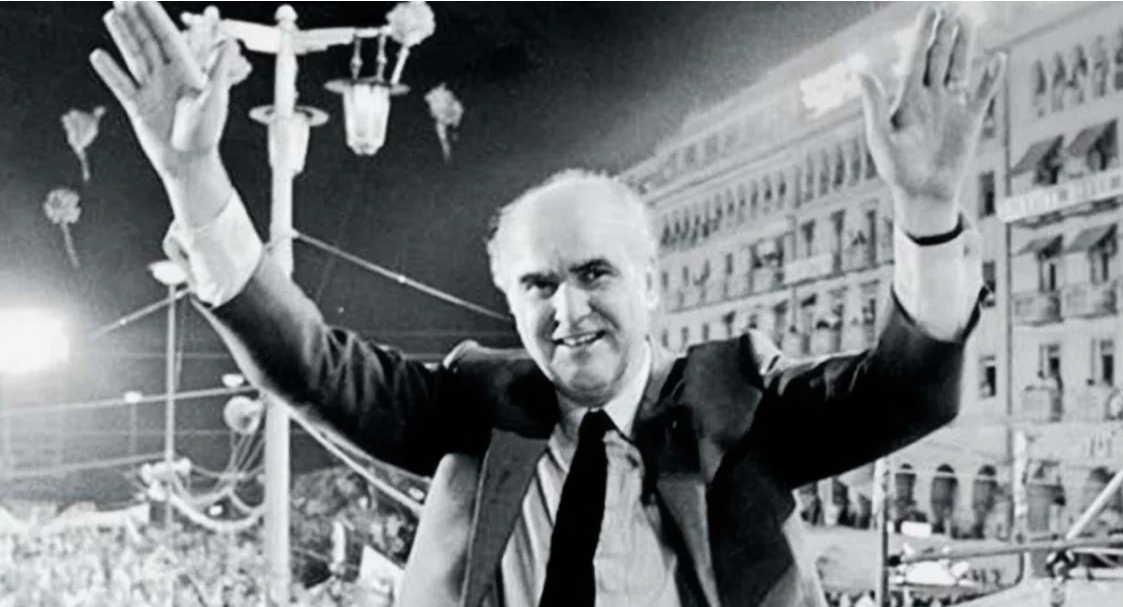As PASOK celebrates another key anniversary—second only to its founding on September 3rd—the party’s leadership at Harilaou Trikoupi isn’t just looking back. They’re focusing on how to harness the symbolism of their past success to fuel a strategic push for power in the upcoming national elections.
On October 18, 1981, PASOK first rose to government, riding a powerful wave of public support for sweeping changes. Today, 34 years later, the party is under different conditions, aiming to regain its footing and make a strong comeback. The party’s focus is clear: strengthening its opposition image and moving swiftly with impactful actions. Many within PASOK believe that leader Nikos Androulakis’ reshuffling of the party’s forces is steering them in the right direction.
In a symbolic move, Androulakis visited the Breast Unit at “Elena Venizelou” Hospital, reminding the public of PASOK’s historic role in establishing the National Health System (NHS). He emphasized that the NHS, a PASOK legacy from the 1980s under Andreas Papandreou and Giorgos Gennimatas, once again requires the party’s policies to protect citizens. Even in her time as opposition leader, Fofi Gennimata managed to push for reforms that bolstered the NHS.
Following a four-month internal election process, PASOK is positioning itself to play a dynamic role as the main opposition party. According to a GPO poll released after Androulakis’ re-election, the party has surged by 2.5 points, from 11.8% to 14.3% in voter preference. Additionally, 60.4% of respondents viewed the internal elections positively, and nearly half (48.8%) believe Androulakis can continue raising PASOK’s profile.
Harilaou Trikoupi believes this upward trend will continue. Starting next week, PASOK plans to showcase its reinvigorated strategy, with MPs and senior officials primed for action. Androulakis is set to announce new roles for key figures, including Paullos Geroulanos and Anna Diamantopoulou, while discussions suggest Michalis Katrinis and Nadia Giannakopoulou may take on “shadow minister” roles. Additionally, MPs such as Pavlos Christidis and Dimitris Mantzos are expected to assume crucial positions as parliamentary representatives.
Androulakis is also building a new “Political Center” to sharpen PASOK’s strategic focus, aiming for regular meetings and enhanced coordination between leadership and the party’s various arms. His close circle will include many of the younger generation who supported him during the campaign. Communications Director Stefania Mourelatou and strategist Vangelis Tsongas are among those with pivotal roles in shaping the party’s future.
The reshuffling reflects a broader commitment to unity, inclusion, and growth, as PASOK charts a path forward to reclaim its place in Greek politics. Androulakis has emphasized frequent and transparent meetings within the party’s key organs to ensure a cohesive and energized strategy. PASOK’s new phase, grounded in its legacy but forward-looking in its tactics, aims to re-establish the party as a central player in Greece’s political landscape.
Ask me anything
Explore related questions





